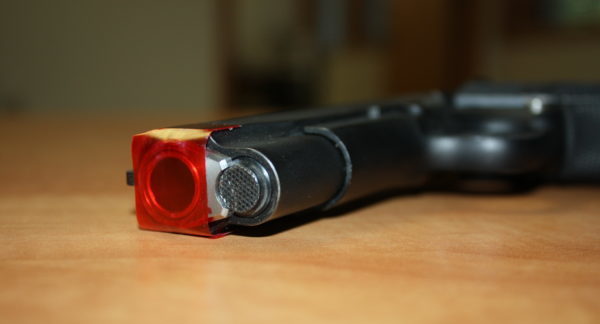
Pew Research is reporting a “modest rise in support for stricter gun laws in the United States since 2017,” including a majority (71%) who “favor banning high capacity ammunition magazines.”
In a story bylined by Pew research assistant Katherine Schaeffer, the polling organization also revealed an increase in the number of Americans who support stricter gun laws, from 52 percent two years ago to 60 percent now. Over the past two years, there have been a string of high-profile mass shootings including the Oct. 1, 2017 massacre that claimed 58 lives and left hundreds wounded.
Still, more than two years after Stephen Paddock opened fire, ultimately taking his own life as police closed in on his suite at the Mandalay Bay hotel, investigators have been unable to identify a motive. Paddock had several firearms, which he purchased legally and assed background checks in the process. He had fitted several with bump stock devices, leading to a ban on the accessory that has apparently failed miserably.
Since then, there have been other deadly attacks, in California, Texas, Ohio and Florida that have led for calls to ban semi-auto “assault-style” rifles and their original capacity magazines.
Democrats are warmer to additional gun control than Republicans. According to the report, “Currently, 86% of Democrats and Democratic-leaning independents favor stricter gun laws, compared with 31% of Republicans and Republican leaners.”
Last year, Pew reported three out of every ten adults said they own a gun and another 11 percent say they live with someone who does. Sixty-six percent of identified gun owners say they own more than one gun.
Fifty-seven percent of adults want stricter gun laws, while 31 percent say current laws are “about right.”
Last year’s report also showed that 91 percent of Democrats and 79 percent of Republicans “favor background checks for private gun sales at gun shows.”
All of this polling data is interesting, but it also raises some questions. For example, as Dr. John Lott, head of the Crime Prevention Research Center in Virginia recently reported, there are more than 18.66 million active concealed carry licenses and permits in circulation across the U.S. Add to that the untold number of citizens who carry without a license in so-called “constitutional carry” states and you have a sizeable group of people packing hardware who haven’t harmed anyone.
According to the FBI Uniform Crime Report for 2018, violent crime, including homicides involving firearms, declined slightly from 2017. Yet more guns appear to be in private hands, and there are many new gun owners.
So there is something of a dichotomy. More people are buying guns and getting licensed to carry, yet clear majorities support stricter gun laws.
Are the surveys missing all of these gun owners, or do gun owners think they need to jump through more hoops to exercise a constitutionally-protected right to keep and bear arms? Have law-abiding gun owners been conditioned to accept what might seem like infringements on a right that “shall not be infringed?”
When he wrote about gun control last year for Pew, John Gramlich observed, “The Second Amendment to the U.S. Constitution gives Americans the right to bear arms.”
But ask any Second Amendment activist and they will tell you the Second Amendment doesn’t give anybody anything. The amendment was included in the Bill of Rights to protect a right the Founders agreed already existed. That right is protected from the government. The majority of state constitutions also contain a right-to-bear-arms provision.
At some point, some of these stricter gun control laws will collide with the Second Amendment or their state constitutions. In Chicago and Washington, D.C., they already have.
Rights are not supposed to be subject to popularity contests or public votes. While no law-abiding citizen wants crazy people or criminals to have guns, adopting stricter gun laws that make it more difficult for honest citizens to exercise their rights not only is not the answer to firearm-related crime, it really doesn’t seem to work so well.
Despite all of these stricter gun control laws, proverbial bad guys continue shooting one another in Chicago, Baltimore, Washington, D.C. and elsewhere. Restrictive laws appear to have only made it more difficult for good guys to shoot back.